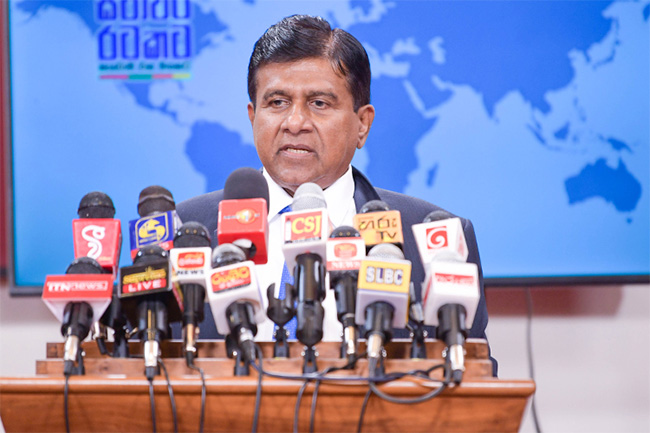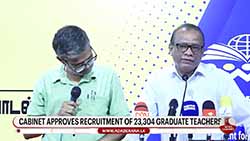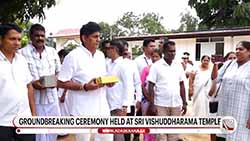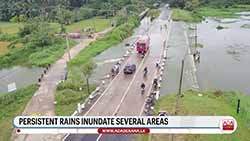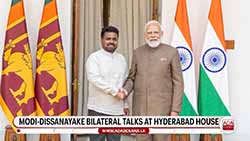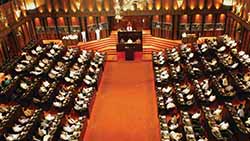Minister Wijeyadasa says education reforms will be expedited
September 12, 2023 11:59 pm
Minister of Justice, Prisons Affairs & Constitutional Reforms Dr. Wijeyadasa Rajapakshe on Tuesday (Sept. 12) emphasized the pressing necessity of formulating a national government policy to enhance the quality of education in Sri Lanka.
Dr. Rajapakse, who is also the chairman of Parliamentary Special Committee tasked with Providing Recommendations for the Expansion of Higher Education Opportunities in Sri Lanka, made this remark while addressing a press conference at the Presidential Media Centre (PMC).
Addressing the press conference further, the lawmaker underscored the challenge of nurturing the human potential of children in the absence of a competitive education system.
He said that as long as the country’s competitive education system persists, it remains challenging to nurture an altruistic community for our nation.
Rajapakshe pointed out that the children need to have a relaxed mindset in order to grasp the knowledge, adding that the pressure of competition often results in mental stress among the majority of university-bound children.
The minister stressed that the emphasis given to universities should also extend to early childhood development adding that ensuring a strong foundation during early childhood is paramount.
Speaking on the lack of organization in the country’s higher education system, the minister said with 16 state universities governed by the University Grants Commission, there exists some independence, but it’s vital to align the necessary provisions for these institutions. “Despite extending free education to the private sector, we have yet to establish a comprehensive system for its oversight.”
Drawing attention to the current demand for vocational training in the country, the minister advocated that institutions offering such education should receive recognition on par with universities.
“I find it disheartening to witness the youth community of our country discouraged from pursuing vocational education. In contrast, vocational training in other countries often leads to the attainment of degrees. This is why I strongly suggest a comprehensive overhaul of our country’s education system.”
The minister also pointed out that the inability to establish a high standard for higher education in the country has led some students to seek education abroad. In addition, the practice of leaving students idle for months after exams until results are released is a serious concern, he said emphasizing that the educational system, which wastes valuable time, must be reformed.
In light of these challenges, Rajapakshe says the government has proposed the establishment of a Higher Education Commission to replace both the University Grants Commission and the Vocational Training Authority. “Under this Higher Education Commission, there would be three units: public universities, private universities and professional universities, each with its own standards protected by a separate unit.”
Speaking further, the minister said the government aims to eradicate the perception of education being a commodity or lacking in quality. “We have put forth numerous suggestions to prevent the recurrence of issues in educational institutions. Additionally, we propose shifting the general level examination to the 10th grade and the advanced level examination to the 12th grade.”



